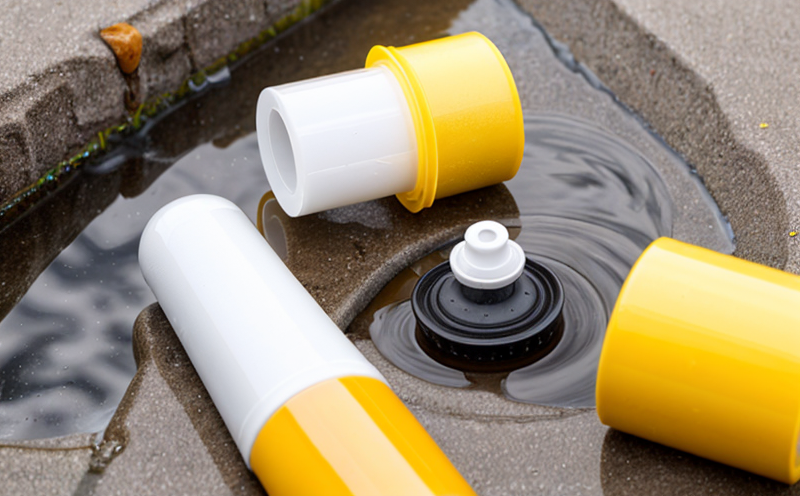ISO 4920 Textiles Determination of resistance to surface wetting Spray test
The ISO 4920 spray test is a fundamental method used in textile testing to determine the resistance to surface wetting. This standard evaluates how effectively a fabric resists water penetration through a specified spray pattern, which simulates real-world conditions such as rain or condensation. Understanding this property is critical for applications where fabrics are exposed to moisture, including outdoor apparel, upholstery, and automotive textiles.
Water resistance is a key performance indicator in many industries, particularly in sectors like clothing, home furnishings, and transportation. Textiles that exhibit high water resistance can maintain structural integrity under wet conditions, thereby enhancing the durability and longevity of products. The spray test provides a controlled environment to assess how well a fabric resists penetration by water droplets.
The testing procedure involves spraying a defined volume of distilled water on a specific area of the textile sample using a standardized nozzle at a set pressure. Afterward, the amount of water absorbed or retained is measured and compared against industry standards. This method allows for consistent quality control and compliance with international regulations, ensuring that products meet safety and performance requirements.
The ISO 4920 spray test can be used in various stages of product development to identify potential issues early on. For instance, it helps R&D engineers refine fabric compositions or improve manufacturing processes by optimizing yarns and finishes for better water resistance. Quality managers rely on this test to ensure that production batches consistently meet the required standards.
Compliance officers also find value in ISO 4920 as it provides a standardized approach to testing, which is essential for maintaining regulatory compliance across different regions. By adhering to international standards like ISO 4920, companies can confidently market their products globally without worrying about discrepancies due to localized testing methods.
Moreover, this test plays a crucial role in the procurement process, enabling buyers to verify that suppliers deliver fabrics meeting specified water resistance requirements. This ensures consistency in material quality and reduces the risk of substandard goods reaching end consumers.
In summary, ISO 4920 is an indispensable tool for textile manufacturers aiming to produce durable, reliable products capable of performing well under wet conditions. Its application spans multiple industries where fabric performance directly impacts user experience and product longevity.
Why It Matters
The significance of the ISO 4920 spray test lies in its ability to provide a clear measure of a textile’s resistance to water penetration, which is vital for ensuring that products perform reliably under various environmental conditions. This test helps manufacturers identify areas needing improvement early in the design and manufacturing phases, ultimately leading to higher quality end products.
For instance, outdoor clothing brands must ensure their garments can withstand harsh weather conditions without compromising on comfort or fit. By using ISO 4920, they can fine-tune fabric selection and finishing techniques to enhance water resistance while maintaining other desirable properties such as breathability and flexibility.
In the automotive sector, upholstery fabrics exposed to condensation inside vehicles need robust water resistance to prevent mold growth and maintain hygiene standards. The spray test ensures that these materials meet stringent safety and durability benchmarks set by industry regulations.
Similarly, home furnishing companies can leverage ISO 4920 to assess the longevity of window treatments or other textiles used in indoor environments prone to humidity fluctuations. By adhering to this standard, they contribute to creating safer, more comfortable living spaces for consumers worldwide.
The importance of the spray test extends beyond just product performance; it also contributes significantly to environmental sustainability efforts. Products designed with superior water resistance reduce waste by extending their useful life span and minimizing the need for frequent replacements due to damage caused by moisture exposure.
Benefits
- Enhanced Durability: Textiles that pass ISO 4920 tests are more likely to withstand harsh environmental conditions, extending their useful life and reducing maintenance costs.
- Better Consumer Satisfaction: Products with excellent water resistance tend to perform better under various weather conditions, leading to higher customer satisfaction rates.
- Regulatory Compliance: Adherence to international standards like ISO 4920 ensures that products meet necessary regulatory requirements, facilitating smoother market entry and expansion into new regions.
- Innovation Opportunities: The test results can guide R&D teams in developing innovative solutions aimed at improving water resistance without sacrificing other important textile characteristics such as comfort or aesthetics.
Use Cases and Application Examples
| Industry Sector | Description of Use Case | Spraying Conditions |
|---|---|---|
| Outdoor Apparel | Evaluating the water resistance of jackets, pants, and rainwear to ensure they can keep wearers dry during heavy rains. | Pressure: 10 kPa; Volume: 25 ml; Time: 3 seconds per area. |
| Automotive Interior | Determining the water resistance of upholstery fabrics within vehicles to prevent mold and mildew growth under humid conditions. | Pressure: 10 kPa; Volume: 25 ml; Time: 3 seconds per area. |
| Home Furnishings | Assessing the water resistance of window treatments or wall coverings to maintain aesthetic appeal and hygiene in damp environments. | Pressure: 10 kPa; Volume: 25 ml; Time: 3 seconds per area. |
The spray test can also be applied in the medical sector, where patient gowns must maintain their integrity during surgical procedures. Similarly, it plays a role in the construction industry for waterproofing membranes used in roof and wall applications.
In each of these use cases, the ISO 4920 spray test provides valuable insights into how fabrics behave under water exposure, helping manufacturers make informed decisions about material choices and process improvements.





